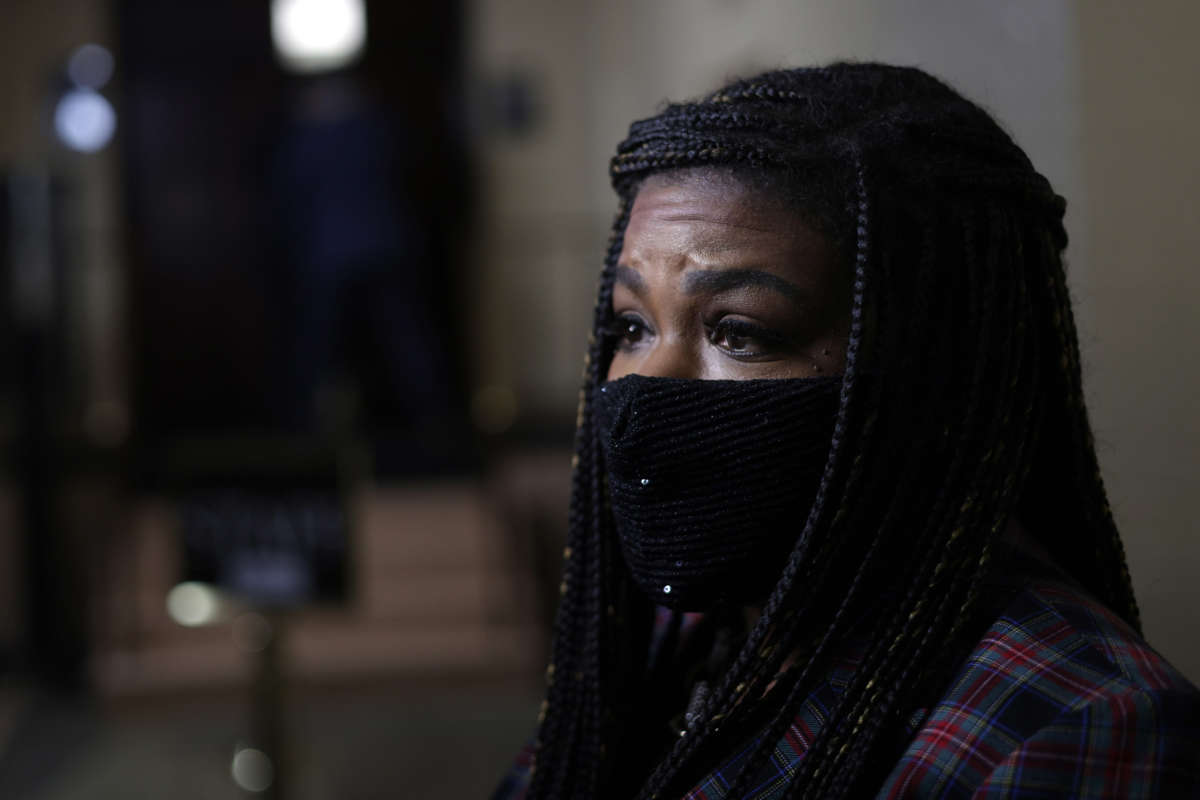Support justice-driven, accurate and transparent news — make a quick donation to Truthout today!
Reproductive rights advocates on Thursday expressed gratitude to three Democratic congresswomen ahead of their testimonies at a House Oversight Committee hearing on protecting abortion access, as Reps. Cori Bush (D-Mo.), Pramila Jayapal (D-Wash.) and Barbara Lee (D-Calif.) planned to share their own personal stories of obtaining abortion care.
“Thank you for your vulnerability to advance justice,” said Rep. Ayanna Pressley (D-Mass.) on social media to her colleagues ahead of the hearing.
The three lawmakers are testifying at the committee’s hearing on “Examining the Urgent Need to Protect and Expand Abortion Rights and Access” beginning at 10:00am.
Watch the hearing below:
On Wednesday evening, Bush, Jayapal, and Lee also shared their personal stories in an interview with MSNBC correspondent Ali Vitali.
.@alivitali did some really powerful interviews with Congresswomen @CoriBush @RepBarbaraLee @RepJayapal, who all shared their abortion story.pic.twitter.com/3jkeYhMei4
— Rachel Witkin (@rachel_witkin) September 29, 2021
“When I found out that I was pregnant it was very difficult because I still didn’t understand what was happening,” said Bush, who became pregnant as the result of being raped at the age of 17. “I just knew I wasn’t ready for a child.”
“I am not ashamed,” Bush said on Twitter Wednesday.
Jayapal shared that she had an abortion after getting pregnant following her first “incredibly difficult pregnancy,” after which she suffered severe postpartum depression.
“I just realized that there was no way I could have another baby at that time and that I could not go through what I had gone through,” said the congresswoman.
The hearing comes days after the House passed the Women’s Health Protection Act, which would ensure access to legal abortion care in every state, and is being held amid increasingly extreme attacks on reproductive rights in Republican-led states. In December, the Supreme Court will hear arguments in a Mississippi case which directly challenges Roe vs. Wade.
Trump is silencing political dissent. We appeal for your support.
Progressive nonprofits are the latest target caught in Trump’s crosshairs. With the aim of eliminating political opposition, Trump and his sycophants are working to curb government funding, constrain private foundations, and even cut tax-exempt status from organizations he dislikes.
We’re concerned, because Truthout is not immune to such bad-faith attacks.
We can only resist Trump’s attacks by cultivating a strong base of support. The right-wing mediasphere is funded comfortably by billionaire owners and venture capitalist philanthropists. At Truthout, we have you.
Truthout has launched a fundraiser, and we have only 24 hours left to raise $15,000. Please take a meaningful action in the fight against authoritarianism: make a one-time or monthly donation to Truthout. If you have the means, please dig deep.
